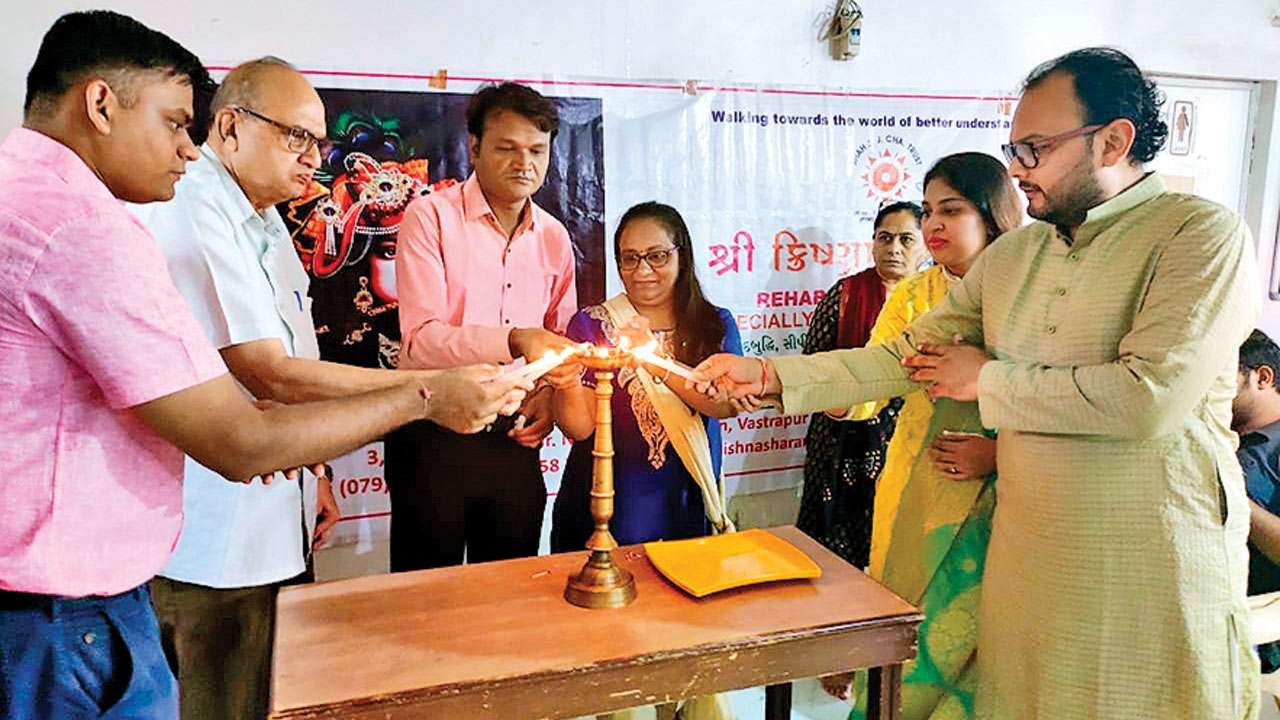Make special children self-sufficient, stabilise their behaviour: Yashesh Shah
Inclusivity: Seminar by city based organisation delves deep into issues faced by special children and parents

JJ Charitable Trust A seminar by JJ Charitable Trust and Society for the Rehabilitation of Mentally Special (SRMS) involved parents of special children and experts
For 57-year-old Mahendra Mistry and his wife Damyanti, life has never been easy. It is an everyday challenge for the couple to ensure that their only child, Dharmik, who is coping with mental illnesses, lives a normal life as against the prejudices of the society. While they might have been successful in their endeavour, as they grow old, they will have a graver concern—who will take care of Dharmik after they are no more?
There are hundreds of parents who have similar concerns. The city-based JJ Charitable Trust and Society for the Rehabilitation of Mentally Special (SRMS) organised a seminar involving parents of such special children and experts to delve deep into the issue and find probable answers.
According Yashesh Shah, managing trustee of JJ Charitable Trust, the foremost important aspect is to make these children self-sufficient and stabilise their behaviour. He said no one will like to become a guardian of a special child with violent behaviour. He added that parents need to create a considerable corpus that can take care of their child post their death. He said parents need to invest for their child in such a manner that the day-to-day and medical costs are taken care of, while factoring in the rising inflation.
The managing trustee added it is equally important for the parents to keep their special child engaged and make sure they undergo vocational training. He explained that while the amount earned by the child is not important, what is important is his engagement and experience of the outside world. Shah clarified that if a special child is kept inside home for days altogether, it could lead to depression.
Rupesh Mehta, a chartered accountant, told parents, who attended the seminar from across Gujarat, to prepare a will, carefully selecting the guardians who will take care of the child in the absence of parents. Parents were also sensitised about the issue of 'legal guardianship' in connection with the National Trust Act.
SRMS's founder Mahendra Mistry told DNA that biggest problem is that society does not accept mentally-ill persons and except for making provisions, which remained confined to papers, the government has not done anything in this regard. He added that there are rules for the employment of special children, but they are not being given jobs.
Acceptance
SRMS’s founder Mahendra Mistry told DNA that biggest problem is that society does not accept mentally-ill persons and except for making provisions, which remained confined to papers, the government has not done anything in this regard. He added that there are rules for the employment of special children, but they are not being given jobs.